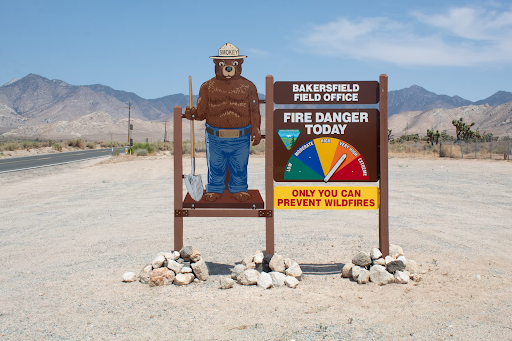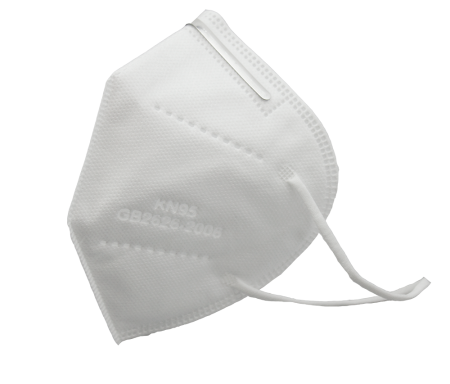
Wildfires aren’t anything new; however, increasingly severe events are becoming more common globally.
In 2020, the western US had a record-breaking number of wildfires, burning over five million acres of land.
In 2019-2020, Australia had the worst bushfire season ever, burning at record rates.
There are many factors contributing to this increase in wildfires, including higher temperatures, increased droughts, and earlier snowmelt. Combined, these factors create the perfect conditions for wildfires of unprecedented intensity and scale.
The Most Alarming Consequence of Increased Wildfires
Long-lasting and far-spreading smoke pollution is perhaps the most significant effect of this increase in wildfires across the globe.
Related: Boost Your Immune System (The Healthy Way)
During the 2020 west coast fires, we saw warnings of very unhealthy and hazardous air quality from Washington to California. In addition, Oregon’s air quality was among the worst in the world at the time.
The smoke from these wildfires reached as far as the east coast and even parts of Europe.
Let’s explore the health consequences of wildfire exposure and the steps you can take to help mitigate those risks.
How Wildfire Season Affects Our Health

The smoke from wildfires contains a mixture of volatile chemicals, particulate matter (PM), and carbon monoxide (CO).
Particulate matter is the most concerning for our health. The US Air Quality Index reports the daily air quality levels and health risks associated with the five major pollutants: PM, CO, sulfur dioxide, nitrogen dioxide, and ground-level ozone.
However, fine particulate matter makes up about 90% of the total particle mass emitted by wildfires, posing a significant health risk. Because of their small size, PM particles can penetrate deep into our lungs, and the smallest ones can get into our bloodstream, settling in and impacting body tissue.
Our bodies can’t filter out these particles, creating long-lasting inflammation.
Short-Term Effects
The short-term effects associated with PM include eye, nose, and throat irritation, shortness of breath, coughing, and the worsening of some pre-existing diseases. Exposure during wildfire seasons is also associated with more ambulatory dispatches—even after only an hour of exposure.
Long-Term Effects
While there aren’t many studies showing the long-term health effects of wildfire smoke, recent research found that the 2017 summer fires exposed Seeley Lake residents to hazardous levels of PM. And one year after exposure, their lung functions significantly decreased; two years later, their lung function still remained low.
However, despite the lack of research on long-term particulate matter exposure from wildfires, there are well-established studies showing the dangers of PM. Exposure is associated with:
- Cardiovascular diseases
- Asthma and lung cancer
- Diabetes
- Premature births and low-weight babies
- Premature deaths in people with lung or heart disease
Who Is Most At Risk During Wildfire Season?
Because wildfire smoke can spread for thousands of miles, the effects of exposure can impact millions of people with its far reach. However, some people are at higher risk for health complications than others.
Those living closer to the wildfires get exposed to higher levels of pollutants for longer periods. In addition, some groups are at higher risk, including:
- People with pre-existing conditions (particularly respiratory conditions or heart disease)
- Older adults who already have an increased risk of lung and heart diseases
- Pregnant women due to physical changes like increased breathing rates
- Young children who spend more time outdoors and whose airways are still developing
- People recovering from COVID-19 with altered immune responses
These groups of people should take greater measures to reduce their health risks during wildfire season.
Related: Improve Your Heart Health Naturally
How to Reduce Your Health Risks During Wildfire Season

Other than general preparations for wildfire seasons and knowing your community’s evacuation plans, there are some steps you can take to reduce your risks of health complications due to wildfire smoke:
Watch local air quality reports
Pay attention to health warnings and news about nearby smoke. Your community may contribute to the Air Quality Index, or you can check AirNow’s fire and smoke map. You should also watch for public health messages regarding wildfire safety measures.
Check local visibility guides
Many communities that often deal with wildfires monitor how many particles are in the air. Especially in the western US, many communities and states have guidelines that people can follow to determine when the levels are particularly high depending on how far they can see.
Keep your indoor air clean
During periods of heavy smoke, it’s advised to stay indoors. Keep your doors and windows shut and continue running your air conditioner — but keep your fresh-air intake closed and filter clean to prevent the smoke from getting inside. If you don’t have AC and it’s too hot to stay inside with your windows shut, look for a designated shelter.
Avoid activities that create pollution
Using gas stoves, lighting fireplaces, and burning candles can all increase your indoor pollution. In addition, vacuuming stirs up particles already in your home worsening your air quality.
Help prevent wildfires
The best safeguard against wildfires is prevention. Build and extinguish campfires safely, follow regulations when burning debris, and talk to your local fire department to ensure the weather is safe for burning.
Follow your doctor’s advice
If you have respiratory issues, talk to them about your management plan and medicine usage. If your symptoms flare up or you have trouble breathing, you might want to consider evacuating the area during wildfire season.
Continue your prenatal care
If you’re pregnant, talk about where you can get delivery services or prenatal care if the offices close. Understand the signs of labor and contact your healthcare provider at the first sign.
Don’t rely on dust masks
Dust and comfort masks found at hardware stores are great for trapping large particles like sawdust. However, they will not protect you from the smaller particles found in wildfire smoke.
Evacuate when necessary
Watch the news, and keep up with evacuation orders. Follow instructions from local officials regarding where and when to evacuate, leave everything except essential items, and follow the designated routes.
Protect yourself when cleaning
After the fire, cleaning can expose you to ash and other irritants, causing adverse health effects. The CDC offers guidelines for safely cleaning after a wildfire.
Essential Supplements to Take During Wildfire Season
When air quality is poor, taking preventative measures against lung damage is crucial — especially for those with pre-existing conditions. Damage occurs from oxidative stress, meaning that eating nutritious foods and taking the right supplements can help counter negative effects.
Some essential supplements to take regularly during wildfire season include:
Vitamin C
Smoke can cause inflammation from oxidative damage, making antioxidants extremely helpful during wildfire season. Vitamin C is an amazing antioxidant!
Vitamin D3
Supporting your immune system with vitamin D is crucial when dealing with smoke inhalation — particularly for those that already have a deficiency.
Glutathione
This supplement can detoxify acetaldehyde and various toxins found in wildfire smoke to help prevent damage from smoke inhalation.
N-acetyl cysteine
Commonly abbreviated as NAC, this supplement is an alternative to glutathione if it’s not available. It facilitates healthy breathing and can help remove germs and toxins that threaten the lungs.
Selenium
This antioxidant can help moderate cellular oxidative stress and fight free radical damage.
Herbs
Many herbs, like ginger, green tea, and turmeric, are effective at inhibiting the activation of various carcinogens found in wildfire smoke.
Related: Health Benefits of Ginger
Bottom Line
Overexposure to wildfire smoke carries many long-term health risks. Exposure may seem like a simple fact of life in areas like California but following these tips and getting the necessary vitamins and supplements can help tremendously.
This article is provided for informational purposes only and is not intended to be used as medical advice. If you have immediate concerns about your health, please seek the help of your physician.
*These statements have not been evaluated by the Food and Drug Administration. This product is not intended to diagnose, treat, cure or prevent disease.
© 2022 Best in Nature All rights reserved







Validate your login
Sign In
Create New Account